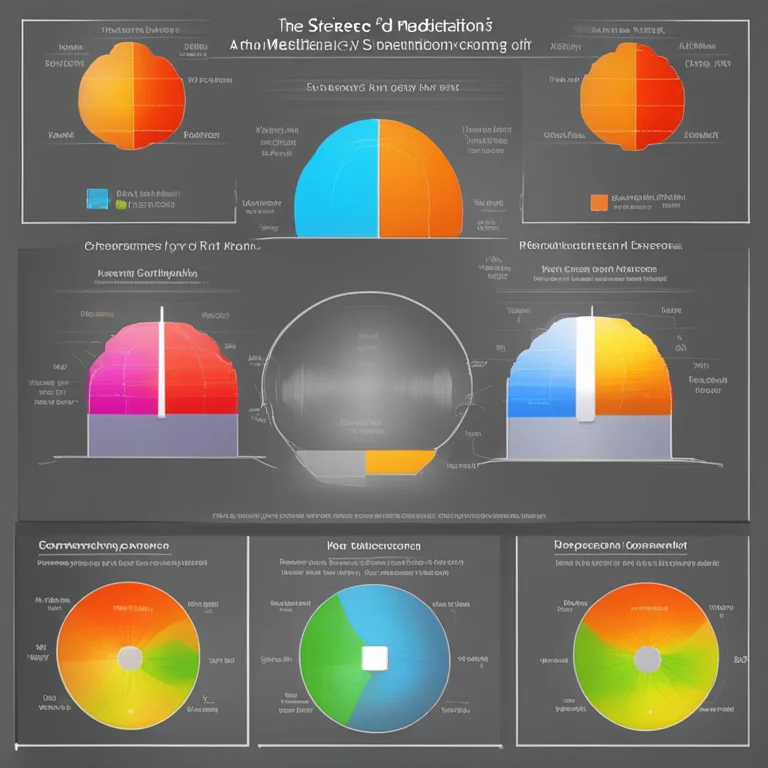
Meditation and Depression Relief: A Mindful Approach
Discover the calming practice of meditation and how it can provide relief from depression, fostering mental well-being and resilience.
article by Hina Kurosawa
Introduction to Meditation for Depression
Meditation has emerged as a beacon of hope for individuals grappling with depression. A non-pharmacological remedy, it's a practice deeply rooted in various traditions and now embraced by modern therapy. Its simplicity and accessibility make it an attractive option for those seeking a holistic approach to improve their mental health. Adopting mindfulness through meditation equips one with the mental tools to better manage the ebbs and flows of emotional turmoil that characterize depression.

The Science of Meditation's Benefits
Recent studies have delved deeply into the impact of meditation on depressive symptoms, propounding its neurobiological and psychological benefits. Neuroscientific research indicates that consistent meditation practice can lead to structural changes in the brain, such as increased gray matter density in regions linked to emotion regulation and self-awareness. Furthermore, meditation has been associated with decreased levels of cortisol, the stress hormone, thus potentially lowering the severity of depressive symptoms and enhancing overall mood stability.

Getting Started With Meditation Practices
Embarking on a meditation journey requires little more than a quiet space and a few minutes each day. Beginners often start with guided meditation sessions that focus on breathing and awareness. As proficiency grows, so too can the complexity and duration of the practice. Techniques can range from mindfulness meditation, which cultivates non-judgmental awareness of the present moment, to loving-kindness meditation, designed to foster compassion towards oneself and others.

Creating a Sustainable Meditation Routine
The key to reaping meditation's antidepressant effects lies in building a consistent practice. Commit to meditating daily, even if it's just for five minutes to start. Incrementally increasing the duration over time can enhance resilience and stamina in your endeavor. Anchoring your practice to a regular schedule helps embed meditation into your daily rhythm, creating a habitual sanctuary for mental restoration.

Meditation Amidst Modern Lifestyle Challenges
Despite the proven benefits, the intersection of meditation with constantly evolving lifestyle demands creates unique obstacles. The digital age can often amplify stress and distractibility, making the tranquil focus of meditation seem elusive. However, this also presents an opportunity: numerous apps and online platforms now offer structured meditation programs, allowing for flexibility and guidance in developing effective practices tailored to mitigate depressive tendencies in our fast-paced world.
Combining Meditation With Other Therapeutic Modalities
While meditation stands as a powerful tool against depression, it is often most effective when combined with other therapeutic strategies. Cognitive-behavioral therapy (CBT), medication, and lifestyle alterations such as nutrition and exercise, can create a comprehensive approach to managing depression. Meditation's role remains supportive and integrative, enhancing the effectiveness of concurrent treatments.
Conclusion: Meditation's Role in Mental Health
Meditation offers a serene compass through the stormy weather of depression. It's not a quick fix, but a practice, which accrues benefits over time. Unveiling its full potential requires patience, dedication, and often guidance. As the world of mental health therapy continues to recognize its value, meditation is becoming an indispensable facet of the quest for emotional balance and psychological resilience in the face of depression.
Published: 1/9/2024
Modified: 1/9/2024
More predictions
Come back here soon to learn more about yourself and your future


Retreat into Serenity: A Meditation Haven
Discover the transformative power of a meditation retreat and find tranquility for mind, body, and spirit in our comprehensive guide.


The Harmony of Meditation and Sleep
Discover the synergistic benefits of meditation for enhancing sleep quality and overall well-being in this insightful article.


The Serene Path: A Guide to Meditation Retreats
Discover the transformative journey of meditation retreats and how they can enhance your spiritual practice in a serene environment.